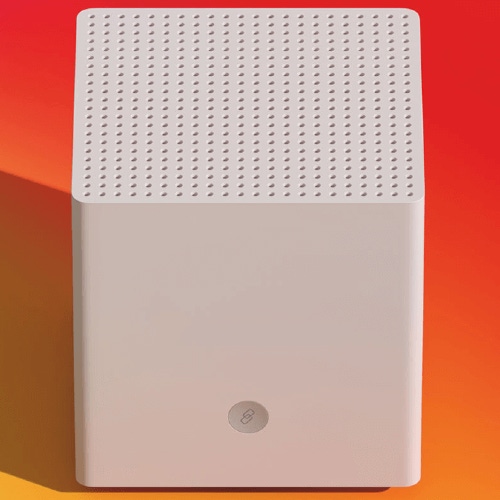'We are seeing good coverage exactly where we thought,' Verizon's Sampath Sowmyanarayan said of the company's C-band 5G network. And he said that's helping sales of edge computing and private wireless.

MWC22 – At the show once called Mobile World Congress, Verizon's news emphasized the non-mobile sort of wireless. The company announced a high-profile deal to build a private 5G network for BlackRock at the investment firm's new headquarters in Manhattan, as well as initiatives with VMWare and the private-wireless startup Celona to help businesses connect devices, buildings and people.
And on Tuesday, a Verizon executive took time to brag a little about what lighting up C-band 5G has done for the fixed wireless access (FWA) service Verizon offers for homes and businesses.
Adding those midband 5G frequencies has allowed for an enormous expansion in the number of homes and businesses covered – more than 30 million residences and more than 2 million businesses, the company announced Feb. 14.
"Even when we don't have millimeter wave (mmWave), we see 100, 200, 300 megs, consistent speed," said Sampath Sowmyanarayan, chief revenue officer at Verizon Business. He added that C-band is delivering a range that matches Verizon's expectations, including indoors: "We are seeing good coverage exactly where we thought."
Opening new markets
Having C-band work in buildings on a self-installed basis where mmWave 5G originally required a tech to set it up has given Verizon a whole new product to sell, especially to businesses that find themselves unexpectedly needing bandwidth overnight.
Figure 1: 
Verizon's 5G Home Internet service router.
(Source: Verizon)
"They don't have to wait for a technician to come," Sowmyanarayan said. "We ship the box – I think you can order up to 6 or 7 at night. By 9 o'clock [the next morning] you're up and running with broadband."
He added that Verizon's been able to scale this up for larger enterprises.
"We are doing a large, 4,500-store deployment for one of the retailers," Sowmyanarayan said. "It's getting done in 90 days."
Verizon sells unlimited plans for businesses starting at $69 for 100 Mbit/s service, while home users get unlimited home 5G, with speeds varying by location, starting at $50; substantial discounts are available on both sides to customers who already have smartphone service from Verizon.
"Half the time it's just classic replacement for broadband," Sowmyanarayan said of the customers Verizon is drawing. "They don't like the cable company."
Cable operators' demonstrated fondness for data caps has played heavily into Verizon's sales pitch, even if it's also led to some expressions of disbelief from cynical customers determined to find a cap in the fine print.
"We are good at fine print as a company, we have a lot of lawyers," Sowmyanarayan said. "We have done the fine print, and there is no data cap."
The other half of Verizon's new fixed-wireless use cases are what he described as "IP deserts" – semi-fixed places like kiosks, food trucks and construction trailers that hadn't benefited from their own connectivity before.
Sowmyanarayan described the BlackRock and Celona announcements as further extensions of fixed-wireless potential that can further its mobile-edge-computing ambitions.
Computing at the private edge
"The Celona thing is another way for us to have a private network solution for us," he said. "For us, private network is the entry for the MEC [multi-access edge computing]."
At BlackRock's new HQ – 15 floors rented at 50 Hudson Yards – Sowmyanarayan said that Verizon's involvement allowed that financial giant to meet changed expectations about in-office work after two years of remote work.
"How do you upscale the office environment when people come back to work?" he asked. "They're going to have the most technologically advanced office in the world."
The next chapter in Verizon's C-band story may not get written by the company alone – it still has to resolve lingering concerns over possible interference from C-band cell sites with radio altimeters in airplanes – but Sowmyanarayan professed no concerns there.
"We are very confident and comfortable with our position on the interference and the lack thereof," he said, adding that he doesn't expect to see the company extend its voluntary six-month reduction in C-band deployments around airports.
After that will come expanding Verizon's C-band past the initial 46 "partial economic areas" at the end of 2023. Sowmyanarayan said that Verizon would follow its past practice of having cell sites prebuilt in those markets to allow day-one C-band 5G service: "Literally the day the satellite companies open that up, we'll turn it on."
— Rob Pegoraro, special to Light Reading. Follow him @robpegoraro.
About the Author(s)
You May Also Like











